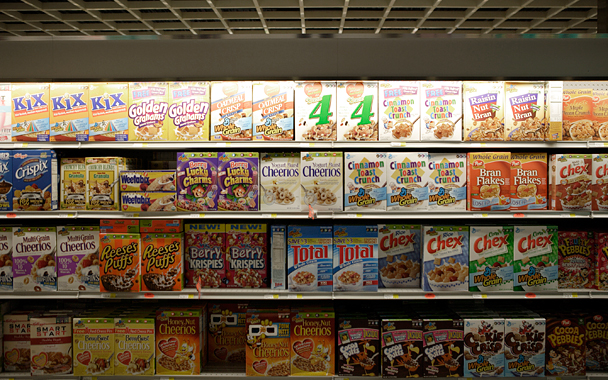I attend more than my share of sustainable-food conferences and find that one uncomfortable truth is rarely addressed: Most of the lofty solutions to the world’s food-supply problems come at a—dare I put this four-letter word up on a family website?—cost.
The reason for its unmentionable status, in my opinion, is that nothing makes well-paid journalists, restaurateurs, academics, and directors of nonprofit organizations cringe so painfully as accusations of being elitist. (Just look at the venomous comments following Laura Shapiro’s recent post in support of Alice Waters on gourmet.com, and you’ll understand that this sensitivity is not entirely irrational.)
So it was refreshing to see the cost issue candidly addressed in session after session at last week’s Cooking for Solutions Sustainable Foods Institute in Monterey, CA, particularly at a time when the world is mired in its worst economic slump in decades.
“Cheap food is a problem. We are going to have to wake up to that fact,” said Dr. Hans Herren, president of the Millennium Institute, an Arlington, VA–based organization that promotes sustainability in developing countries.
I can almost hear the howls of outrage at such a comment, but after listening to other attendees at the conference, I came to the conclusion that Herren’s blunt assessment was as honest as it was heretical.
“In the United States we now pay half as much for food as a percentage of our income as we did 50 years ago,” said Karen Christensen, the global produce buyer for Whole Foods Market. “Achieving sustainability will mean that prices will have to go up.”
Tired jokes about “Whole Paycheck Market” aside, Christensen has a valid point, particularly when you take into account the true costs of all of the “cheap” food in today’s supermarket. “In this country our food would be 20 percent more expensive—and that’s a conservative figure—if the externalized costs were added back in,” said Dr. Frederick Kirschenmann, senior fellow at the Leopold Institute for Sustainable Agriculture, Iowa State University. He was referring to agricultural subsidies, tax breaks, and the cost of cleaning up environmental damage resulting from the production of “cheap” food. They have to be paid for by somebody.
The argument in favor of cheap food would be more meaningful if the people who could benefit most—impoverished inner-city residents—had access to it. But according to Jim Slama, president of Family Farmed, a Chicago-area organization that supports local food producers, the biggest problem those consumers face is that there are no supermarkets, period, serving their neighborhoods. That means they have to patronize convenience stores where the food often is neither cheap nor nutritious (let alone sustainable).
Meanwhile, even in these rocky financial times, American consumers appear to be putting values over the once-almighty dollar. “We pride ourselves on having the cheapest food in the world. It’s almost viewed as a right,” said Kirschenmann. “But the notion of all you can eat—quantity over quality—is now starting to change. Eat less, but eat better—it’s a cultural shift.”
And it may be a shift with staying power. In addressing the issue of higher costs associated with raising animals more humanely, Marcus Benedetti, president of Clover Stornetta Farms, a California-based dairy company, said: “People are saying, look this is not a discretionary choice. It has become a set of principles they are not going to part with even in this economy.”
Not putting the almighty dollar before principles—call me elitist, but that’s something I can buy into.


